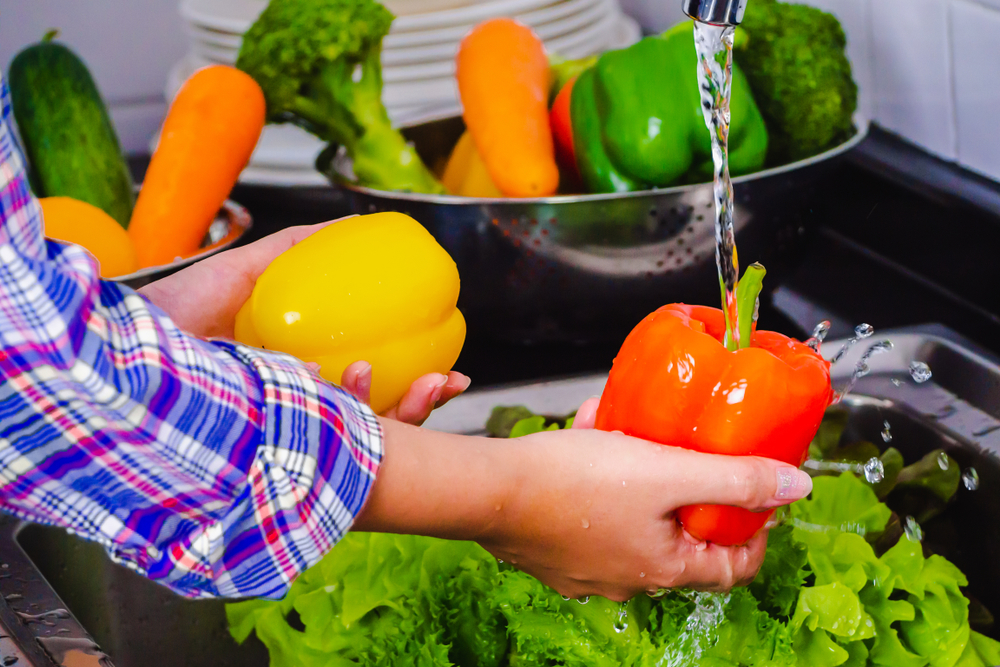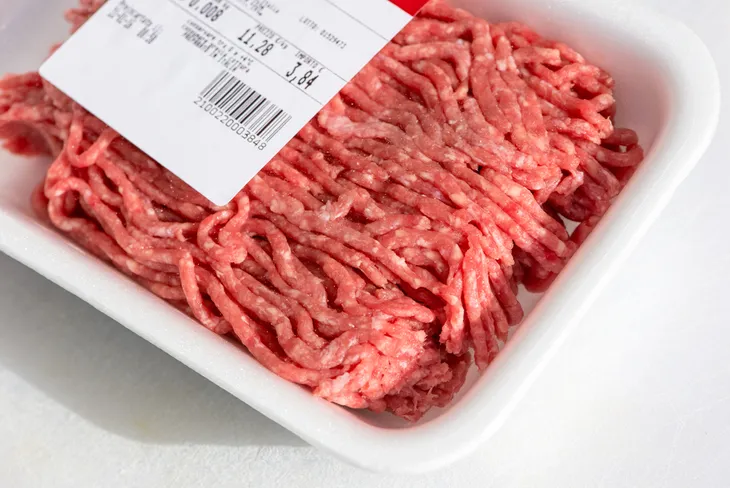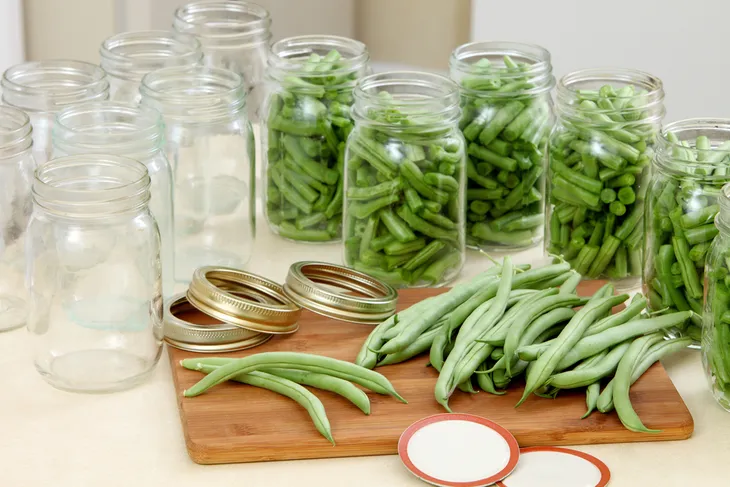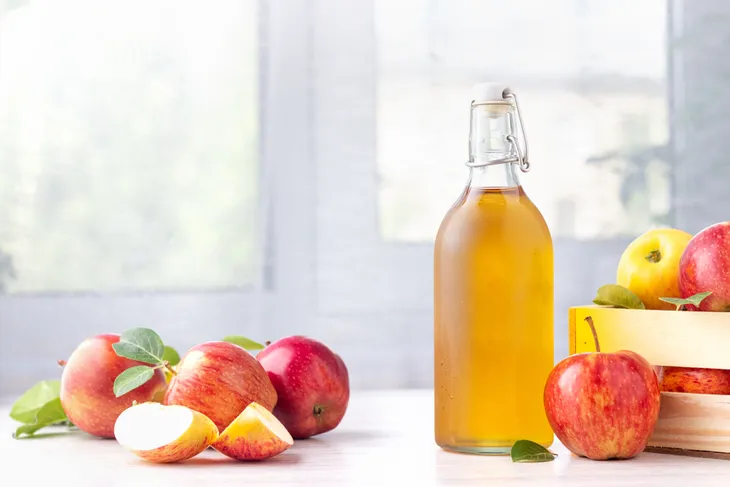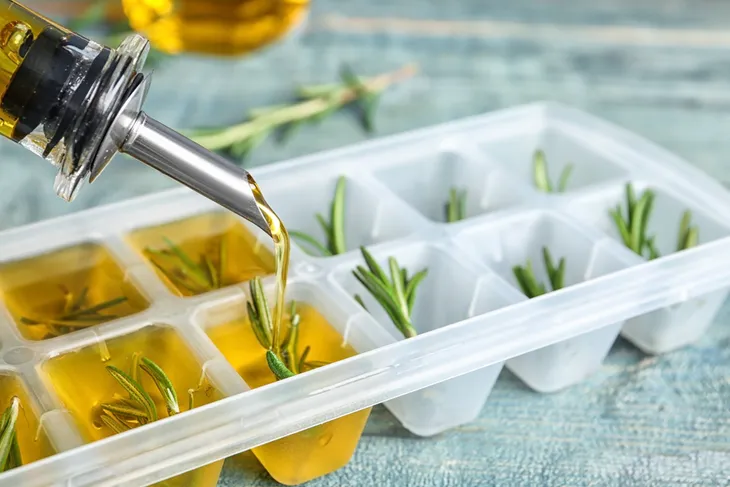According to the Public Health Agency of Canada, approximately 12 million people become ill every year from foodborne bacteria. Children under the age of 5, seniors, and adults over age 60, pregnant women and people with weakened immune systems are the most vulnerable. Food poisoning can be caused by bacteria such as Escherichia coli (E.coli), Salmonella, Clostridium botulinum, Listeriosis, Cyclospora, Shigella, Vibrio, or from the norovirus or hepatitis A and E.
Parasites may be contracted from eating raw meat or fish improperly prepared…
General Tips and Guidelines
Prevention is easier than treatment when it comes to food poisoning. Always wash your hands with warm, soapy water for at least 20- to 30-seconds before and after handing food. Make sure to sanitize your preparation surfaces. Do not allow the juices from raw meat, fish or poultry to come in contact with other foods.
Do not rinse frozen meat or poultry in warm water to thaw as the water may splash and contaminate other surfaces. Put meat, poultry, eggs, and fish in the fridge as soon as you get home from shopping and do not leave them out on the counter for more than 2 hours. Pay careful attention to best before and expiry dates and follow all cooking instructions.
Beef
According to the government of Canada, the internal temperature of a solid cut of beef, such as steak, is not considered a significant health concern due to the fact that harmful bacteria is normally only found on the surface of the meat and would be destroyed if cooked “rare”. However, when beef is mechanically tenderized there is a potential for bacteria to spread to the center and cooking the entire cut (well done) is recommended.
People who handle ground beef often become ill from not washing their hands afterwards or undercooking their meat. Cook raw ground beef within 2 days of purchasing, otherwise freeze it. Keep raw meat separate from other groceries and marinate in the fridge, not at room temperature.
Preventing Botulism when Canning or Bottling
If seafood such as fish, shellfish, lobster, crab, clams, and whelks are not properly canned or bottled it can cause a deadly foodborne illness called botulism. Botulism is a serious and poisonous bacterium, which is not necessarily destroyed by heating. Symptoms may include nausea, vomiting, weakness, dizziness, double vision, paralysis, respiratory arrest or death.
Botulism symptoms typically occur 12- to 36-hours after ingestion of affected food. Wash your hands, utensils and equipment before you start to prepare or can. In order to bottle or can seafood safely, you must use a specialized piece of equipment called a pressure canner. It uses steam to reach the high temperature necessary to eliminate the botulism bacteria.
Eggs
The Salmonella bacteria can be found on the outside of egg shells and can occasionally be found inside if the shell is cracked or damaged. Use only unbroken eggs. Raw or cooked eggs spoil quickly in the temperature danger zone (40- to 140-Fahrenheit or 4- to 60-Celcius) and should be discarded if left out at room temperature for more than 2-hours.
Hard boiled eggs can be kept in a sealed container in the refrigerator for up to a week maximum. Eggs and any egg based food should be cooked to an internal temperature of (74-Celsius or 165-Fahrenheit). You should be aware that cookie dough and cake batter made with eggs may contain the salmonella bacteria and therefore should not be eaten until cooked.
Poultry
Raw poultry such as chicken, turkey or duck can contain Salmonella or Campylobacter bacteria. They primarily affect children under 5 and young adults (15 to 29). Young children should be kept away from raw poultry at all times. Make sure the juices do not leak or come into contact with other foods. Poultry should be either frozen immediately or cooked within two days of purchase.
Wash your hands before and after handling poultry. Also wash all utensils and preparation surfaces. Thaw frozen poultry in the refrigerator. Remember that colour alone is not a good indication as to whether or not your poultry is fully cooked. Use a meat thermometer and cook whole poultry until the thickest part is 82-Celsius or 180-Fahrenheit.
Fruits and Vegetables
Vegetables and fruits such as melons and berries can be contaminated by soil because they are grown close to the ground. They can also be contaminated by animals, ground water or manure. Make sure to choose green, leafy vegetables and discard any wilted or brown parts.
Bagged, pre-washed vegetables or salads should be refrigerated and used before the expiry date. Fresh leafy greens stay good in the refrigerator for up to 7 days. Wash your hands with soap prior to handling vegetables. Discard the outer leaves and wash under cool running water until all dirt is gone.
Unpasteurized Juices or Ciders
Unpasteurized juices include “fresh-squeezed” juices sold at health food stores or juice bars. It can be contaminated with viruses, bacteria or parasites. Contamination can occur at the farm, during handling, processing or while in transport.
Ask if the vendor adheres to the standards set out in Code Of Practice when purchasing these juices or ciders from farmers markets, cider mills, juice bars, orchards, or roadside stands. Refrigerate all unpasteurized juices as soon as possible.
Vegetables and Herbs Stored in Oil
Botulism can grow in vegetables or herbs improperly stored in oil. Garlic, onions and sun dried tomatoes are examples of vegetables which can be stored in oil. Generally if the ingredient list includes salt or vinegar then the product is safe. This is because these foods are processed with specialized technology that is not available at home.
When preparing your own vegetables to be canned or bottled in oil be sure to avoid bruised or wilted vegetables. Make sure to wash your hands and utensils. Label, date and store your prepared vegetables in the refrigerator. Use your oil within one week of making it and throw out any surplus. Spoiled oil, unfortunately looks, tastes and smells the exact same as good oil.
